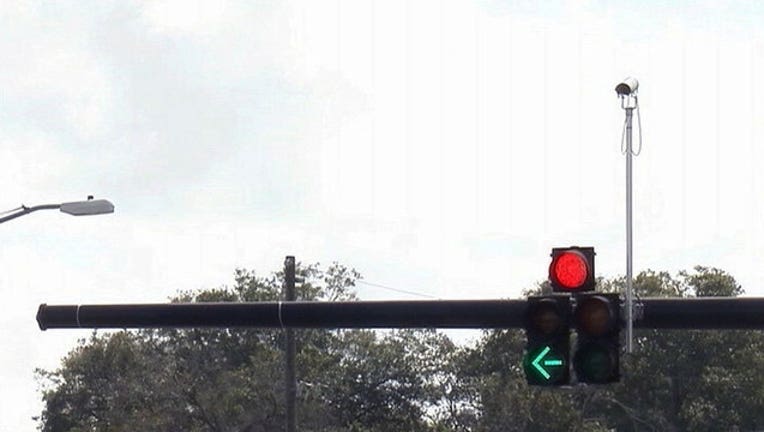Appeals Court backs red light camera program

TALLAHASSEE, Fla. (NSF) - In the latest in a series of rulings across the state, an appeals court Friday rejected a challenge to a Pinellas County city's red-light camera program.
A three-judge panel of the 2nd District Court of Appeal said the city of Oldsmar did not improperly given too much authority to a private contractor that sorts through images from red-light cameras and, later in the process, sends out violation notices to motorists.
The 31-page ruling conflicts with a 2014 decision by the 4th District Court of Appeal that said a similar red-light camera program in the Broward County city of Hollywood violated state law. The conflict between the rulings could ultimately have to be resolved by the Florida Supreme Court, which last year declined to hear an appeal in the Hollywood case.
In Friday's ruling, members of the three-judge panel said they "simply disagree" with the ruling in the Hollywood case. They said Oldsmar has not handed over too much enforcement authority to the contractor, American Traffic Solutions, Inc., or ATS.
"We conclude that under the arrangement between the city and ATS, the power to determine whether a red light violation has occurred and the ultimate decision to issue a notice of violation and a UTC (uniform traffic citation) remains with the city," said the ruling, written by appeals-court Judge Douglas Wallace and joined by judges Darryl Casanueva and Marva Crenshaw. "Thus, there has been no unauthorized delegation of police power."
Red-light cameras have drawn repeated political and legal debates in recent years, with local governments contending that the devices improve traffic safety. Critics dispute the safety arguments and say red-light cameras are used to generate traffic-violation revenue for local governments.
Local governments typically contract with private companies to help run the programs. But legal fights have focused, at least in part, on whether local governments are handing over too much enforcement power to the companies.
In addition to Friday's ruling and the 2014 decision in the Hollywood case, the 3rd District Court of Appeal in July upheld the city of Aventura's red-light camera program in a case that also focused on the authority given to American Traffic Solutions.
The Oldsmar case stemmed from a citation issued in 2014 to motorist Tammy Vo Trinh for going through a red light, according to Friday's ruling. Trinh later filed a motion to dismiss the citation, alleging that Oldsmar had "impermissibly delegated its police power" to the contractor. A Pinellas County judge ruled in Trinh's favor, citing the 4th District Court of Appeal decision in the Hollywood case.
But the appeals court Friday overturned the county judge's ruling. It said, in part, that a city traffic-infraction enforcement officer decides whether probable cause exists for motorists to be cited, after an initial screening process by employees of the contractor. It said that screening process is governed by rules spelled out by the city.
"Although ATS processors initially screen the recorded events on behalf of the city, the screening function is circumscribed by the city's business rules," the ruling said. "Naturally, the business rules are designed to avoid wasting the TIEO's (traffic-infraction enforcement officer's) time in reviewing events that cannot be prosecuted for one reason or another or that the city has determined it does not wish to review for possible red light violations."
Also, the appeals court said that a later part of the process that involves the contractor sending out citations is "merely ministerial."
Information provided by The News Service of Florida.

